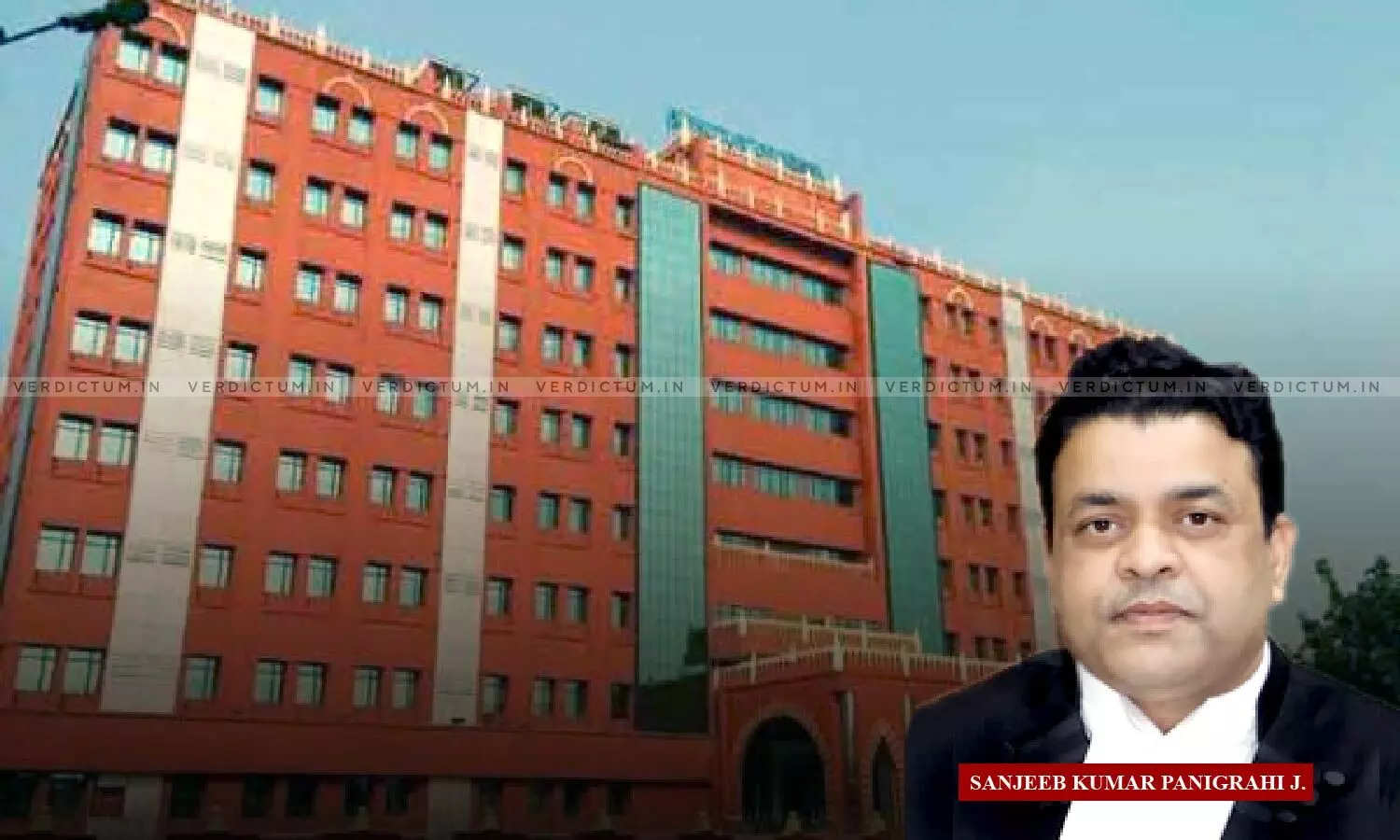
Justice SK Panigrahi, Orissa High Court
Candidate Suppressing Material Information Doesn’t Possess Unfettered Right To Seek Appointment: Orissa HC
 |
|The Orissa High Court upheld the cancellation of the petitioner’s candidature for the position of Junior Overman (Trainee) and observed that a candidate who suppresses material information or provides false declarations does not possess an unfettered right to seek appointment.
The Court further highlighted that the FIRs, though not resulting in convictions or formal court arrests, were material to the application process and should have been disclosed.
The petitioner had approached the High Court challenging the cancellation of his candidature for the position of Junior Overman (Trainee), as communicated in the Letter issued by the Deputy General Manager, MPP, Recruitment & PR, NLC India Limited.
The Single-Judge Bench of Justice S.K.Panigrahi asserted, “The petitioner's failure to disclose these FIRs, even though no court arrest occurred, constitutes suppression of material information.”
Advocate S.K. Purohit represented the Petitioner while DSGI P.K. Parhi and Advocate A. Khandelwal represented the Opposite Party.
The petitioner, a Project Affected Person (PAP) of NLCIL, had applied for the position of Junior Overman (Trainee) in the S.I. grade at NLCIL.The petitioner was found eligible and proceeded to the document verification stage. Pending the medical examination, the petitioner was informed that his candidature had been withdrawn, and his selection had been cancelled. This action was taken due to alleged violations of the advertisement attached to his application wherein the petitioner had answered in negative to the question of any prior conviction, detention or prosecution by any court of law. The cancellation was attributed to the existence of three FIRs at the time of his application.
Aggrieved by the cancellation of his candidature the petitioner filed the present Writ Petition.
It was the case of the petitioner that the cancellation of his candidature was based on fabricated claims. All relevant facts, including criminal cases, had been disclosed during the document verification process, but the Opposite Parties raised the issue at a later stage. The petitioner further submitted that the FIRs, which included charges under the IPC and the Arms Act, had been fabricated by the Opposite Parties due to dissatisfaction with the petitioner’s persistence in pursuing the job.
The petitioner deliberately suppressed information about pending FIRs in his online application, violating the Clause of Advertisement which mandated rejection or termination if false or suppressed information was submitted. The cancellation of the petitioner’s selection was necessary to ensure adherence to these standards and the selection of transparent, eligible candidates.
The Bench, at the outset, observed, “It is no longer res integra in law that the role of a writ court to interfere with the discretionary power of the appointing authority is necessarily limited. This discretion, however, must be exercised judiciously, with due regard to the principles of fairness, proportionality, and the objectives of public service.”
The Bench was of the view that the authority retains the prerogative to evaluate a candidate’s fitness/ including instances of prior criminal antecedents or suppression of information.
“However, the determination of whether suppression or falsehood has occurred depends on the specific facts of each case and the precise requirements of the attestation form. It was clarified that where a candidate is required to disclose if they have been convicted by a criminal court, answering in the negative does not amount to misrepresentation if only a criminal case is pending at the time”, the Bench said.
In the present case, the petitioner applied for the position of Junior Overman (Trainee) at NLC India Limited. The petitioner disclosed no criminal convictions or arrests but failed to mention three pending FIRs at the time of application, despite the question in the recruitment form specifically requesting disclosure of such information. “These FIRs, though not resulting in convictions or formal court arrests, were material to the application process and should have been disclosed”, the Bench said.
The Bench further noted that the application form for the post explicitly required candidates to provide truthful information regarding criminal convictions, arrests, or pending cases. “The petitioner's failure to disclose these FIRs, even though no court arrest occurred, constitutes suppression of material information. The purpose of the disclosure was to ensure transparency and assess the candidate’s suitability for a role demanding high standards of integrity. The concealment of the FIRs undermines this principle and raises concerns about the candidate’s integrity”, it further held.
“A candidate who suppresses material information or provides false declarations does not possess an unfettered right to seek appointment. The suppression of criminal antecedents and failure to disclose pending FIRs has significant consequences, particularly for positions that demand trust and integrity”, the Bench said.
As per the Court, the impact of withholding such material information, including involvement in criminal cases, is within the employer's discretion to assess. The employer must evaluate all relevant facts and circumstances, considering objective criteria and applicable service rules, before making a decision.
Thus, finding no merit in the petitioner’s plea to interfere with the cancellation of his candidature for the position of Junior Overman (Trainee), the Bench dismissed the Writ Petition.
Cause Title: Manoj Rohidas v. Union of India & Ors. (Case No.: W.P.(C) No.14568 of 2024)
Appearance:
Petitioner: Advocate S.K. Purohit
Respondent: DGSI P.K. Parhi, Advocate A. Khandelwal